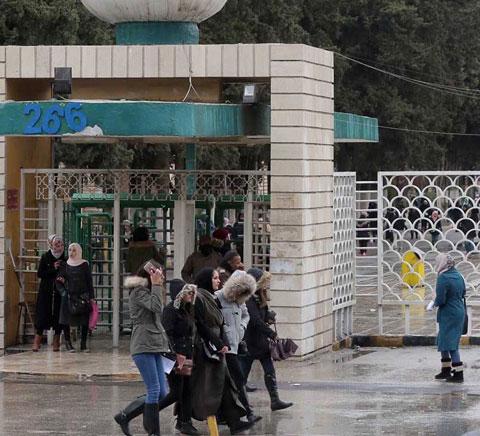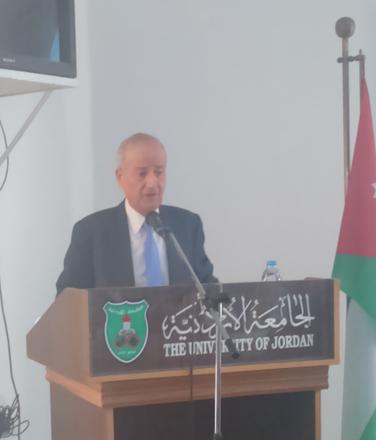You are here
Results of proficiency test sound alarm but ‘not enough attention paid’
By Dana Al Emam - Dec 27,2016 - Last updated at Dec 27,2016

Both public and private universities did not do well in a test to measure the outcome of the education process, sounding the alarm (Photo by Osama Aqarbeh)
AMMAN — Education experts say further incorporation of critical thinking skills in university programmes is needed to enhance the performance of university students in the proficiency exam.
Meanwhile, the exam itself could use some improvement, they said.
The Higher Education Accreditation Commission (HEAC) on Monday announced the results of the proficiency exam, which students that are expected to graduate from private and public universities take in their last academic semester.
A total of 19,680 students from all private and public universities sat for the test, which examines students' knowledge on the general (25 per cent of the mark), the intermediate (20 per cent) and the detailed levels (55 per cent), explained HEAC's President Bashir Zu'bi at a press conference this week, as cited by local reports.
Exam results showed that students did not master 4 out of 9 general proficiencies of the exam (scientific research and result analysis, critical thinking, mathematical processing and verbal processing), with an overall proficiency rate of 55 per cent.
Regarding intermediate skills, students did not master 10 out of the 18 fields of this section of the exam, with an overall proficiency rate of 45 per cent.
Meanwhile, detailed questions showed that students of 140 out of 208 majors did not exhibit the skills needed to pass this level, with an overall proficiency rate of 30 per cent.
Students of the Princess Sumaya University for Technology performed best, followed by students of the Jordan University of Science and Technology, the German-Jordanian University, the technological engineering faculty of Balqaa University, Mutah University, Yarmouk University, the Arab Open University and the University of Jordan.
Fields with best performing students were journalism and media, social sciences, audiovisual arts, administrative sciences, arts, education, engineering and language.
Education expert Hosni Ayesh underscored the need to change teaching styles from spoon feeding to more interactive approaches that encourage students to think for themselves and discuss issues with their instructors, starting at schools and moving up to the tertiary education.
Meanwhile, he said students are fully capable of gaining critical thinking and research skills if they are trained to use them from childhood.
Meanwhile, an academic, who preferred to remain unnamed, said the proficiency exam itself cannot accurately measure the actual performance of students, noting that the fact that the exam results do not affect students’ grades makes students less likely to take the exam seriously.
Furthermore, he said the exam treats universities that offer 250 programmes and those who offer 4 programmes on equal footing, which is “unfair” to universities that mainly offer humanities programmes, as the performance of students in scientific majors is usually better.
In addition, he claimed that the HEAC does not have invigilators monitoring the proceedings of the exams, which would possibly “make room for cheating” encouraged by the universities themselves to score higher and save their reputations.
Officials at HEAC were not available to comment on the claims.
For his part, Coordinator of the National Campaign for Defending Students’ Rights (Thabahtoona) Fakher Daas said the dwindling government support to universities has prompted them to expand admission of students in the parallel programme and other programmes which has negatively affected the quality of the graduates.
This was reflected in a drop in the performance of students in general and in such exams as well, he added.
Meanwhile, Daas agreed with the academic expert on the lack of attention to such exams either by students or professors. Neither of them take the test seriously, he said.
Related Articles
All students expected to graduate from private and public universities will be required to sit for a proficiency exam starting in November, a higher education official said Sunday.
AMMAN — The vast majority of university students suffer from “poor” scientific research, analytical, critical and numerical skills, accordin
AMMAN — Higher Education Accreditation Commission (HEAC) President Bashir Zu’bi on Thursday said that results of classification of the Jorda
















